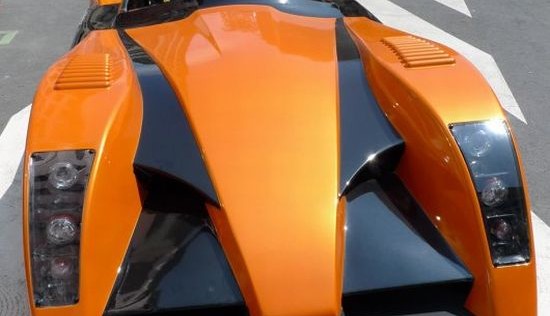Electric Dynacar Goed Fast (0-100kph / 5.7 seconds)
June 02, 2010
on
on

The Tecnalia Technological Corporation has presented its experimental vehicle —'Dynacar'—, a totally electric car that can reach a speed of 140 kilometres per hour in 10 seconds. The presentation took place at the International Eco Friendly Vehicle & Sustainable Mobility Show in Madrid, held between the 20th and 23rd of May.
The vehicle has a peak power of 100 kW provided by a permanent magnet synchronous electric motor, a total weight of 700 kg and an energy storage capacity of 15 kWh.
Acceleration from 0 to 100 km/h is estimated to be under 5.7 seconds, the optimum management of traction control being critical. The peak speed is approximately 140 km/h, reaching this figure in 10 seconds. Autonomy in an urban cycle is some 70 kilometres; "an appropriate distance for the purpose of the experimental vehicle", according to those responsible at Tecnalia.
I drove quite a few electric vehicles the last few months. What keeps surprising me is the enourmeous torque these engines produce. I wouldn't be surprised to see an all electric vehicle break the magical 0 to 100kph in under 3 seconds marker soon.
Read more at Eurekalert
The vehicle has a peak power of 100 kW provided by a permanent magnet synchronous electric motor, a total weight of 700 kg and an energy storage capacity of 15 kWh.
Acceleration from 0 to 100 km/h is estimated to be under 5.7 seconds, the optimum management of traction control being critical. The peak speed is approximately 140 km/h, reaching this figure in 10 seconds. Autonomy in an urban cycle is some 70 kilometres; "an appropriate distance for the purpose of the experimental vehicle", according to those responsible at Tecnalia.
I drove quite a few electric vehicles the last few months. What keeps surprising me is the enourmeous torque these engines produce. I wouldn't be surprised to see an all electric vehicle break the magical 0 to 100kph in under 3 seconds marker soon.
Read more at Eurekalert
Read full article
Hide full article


Discussion (0 comments)